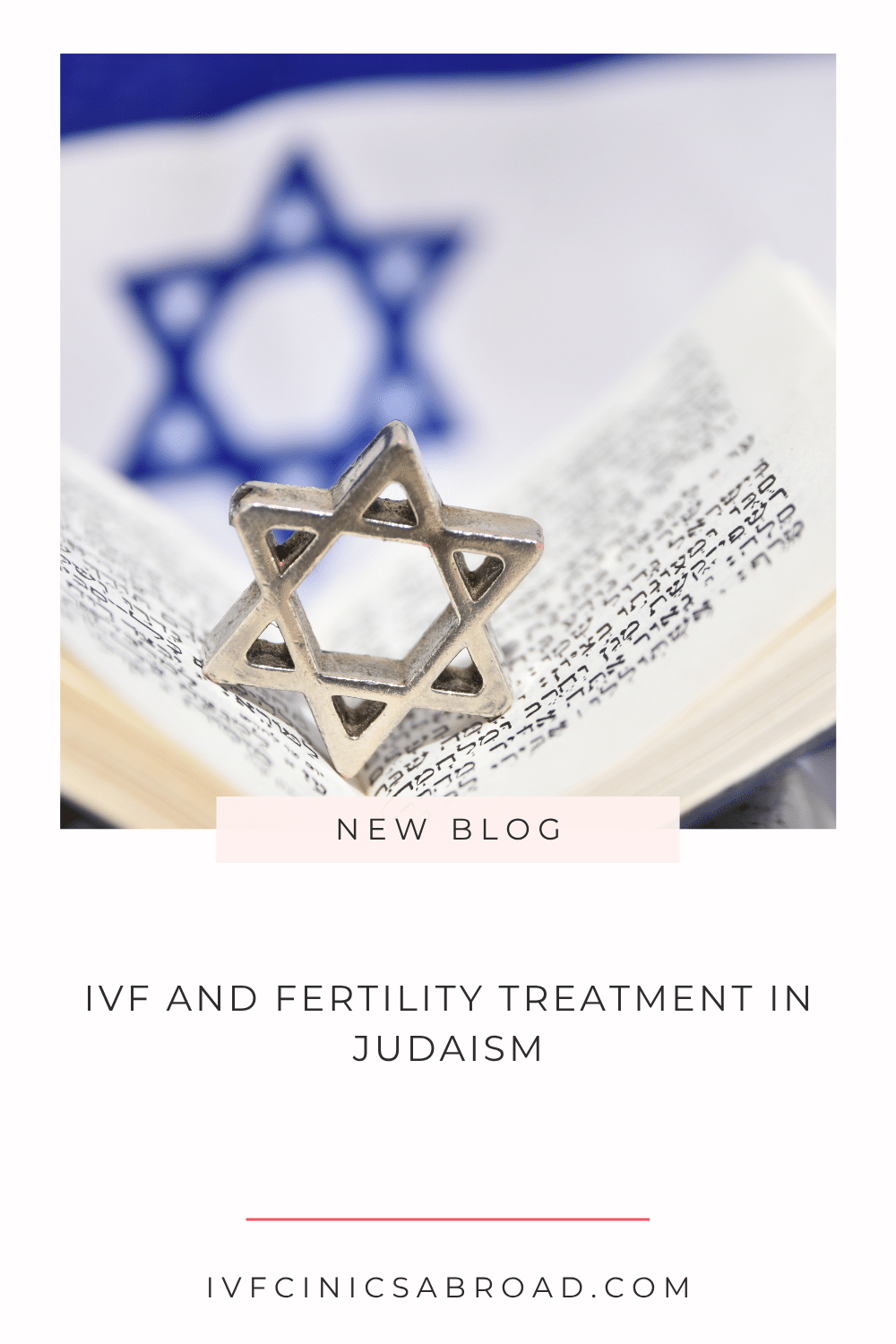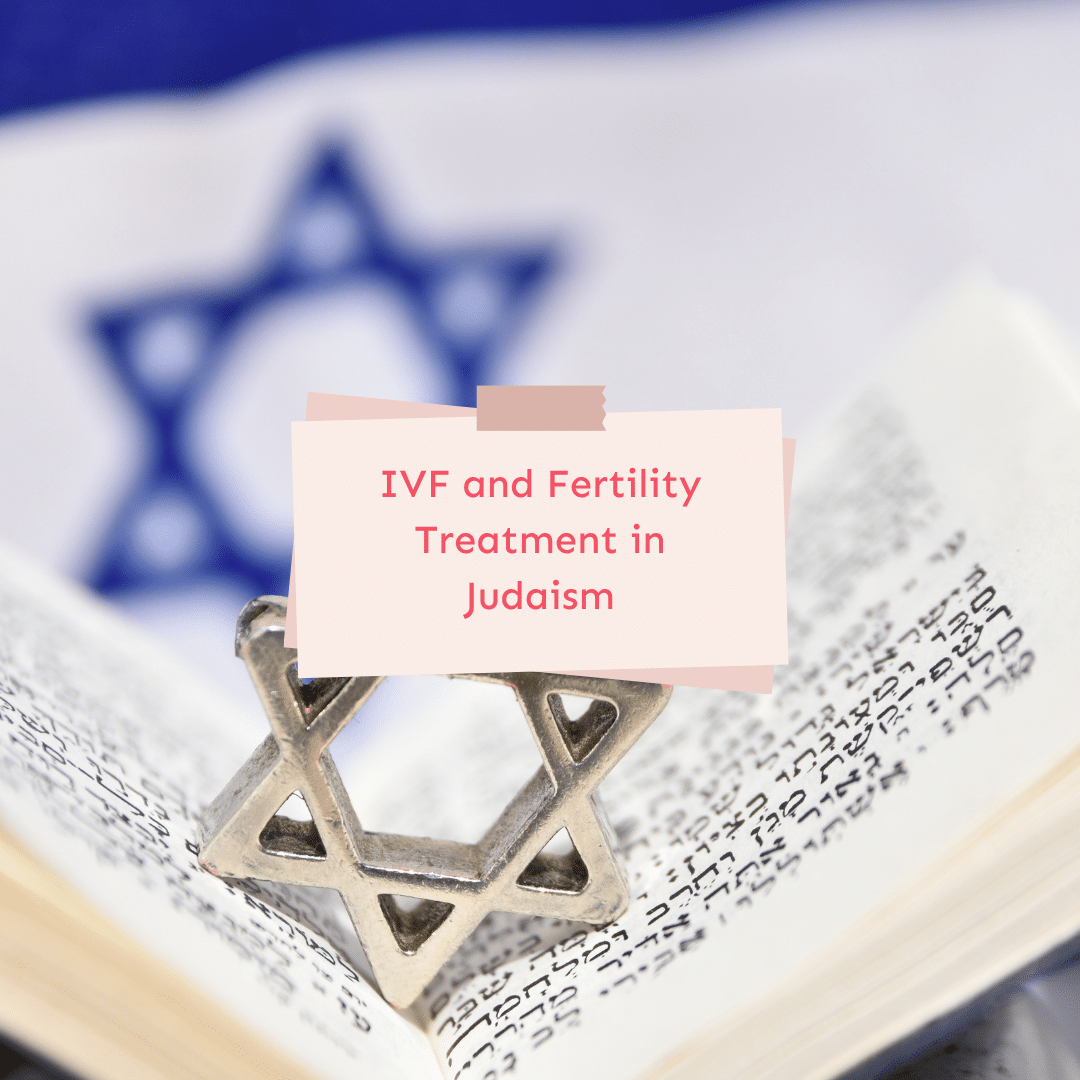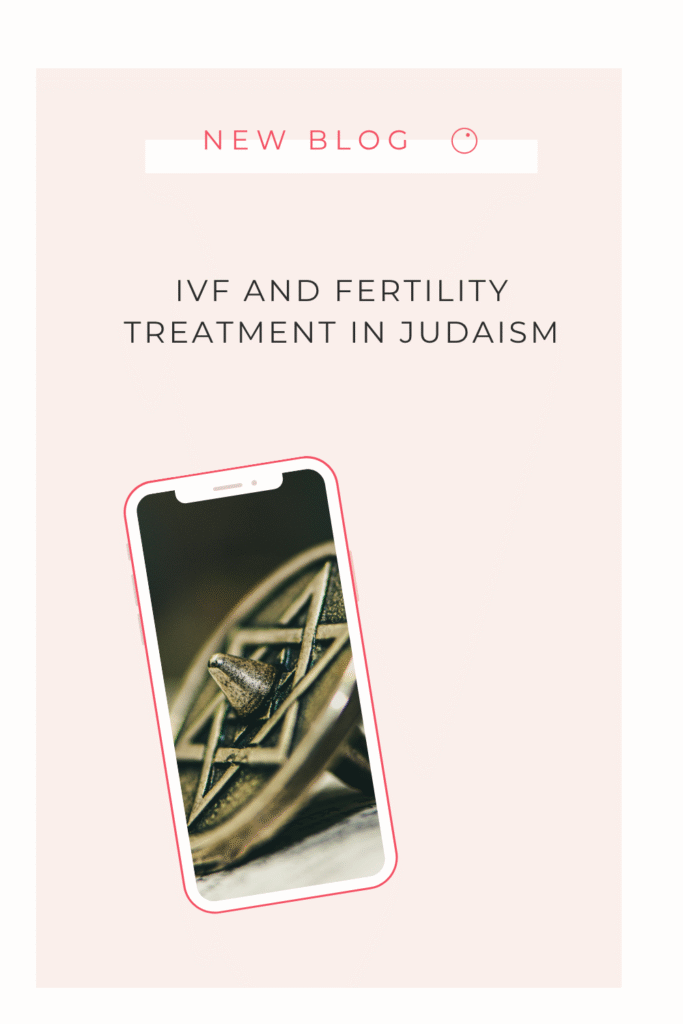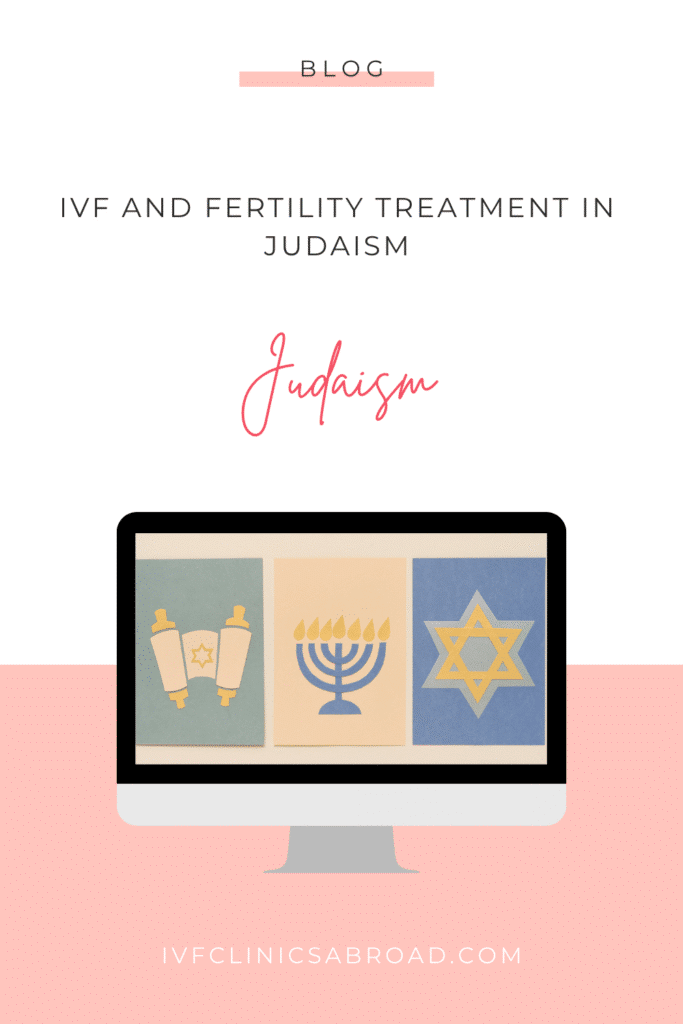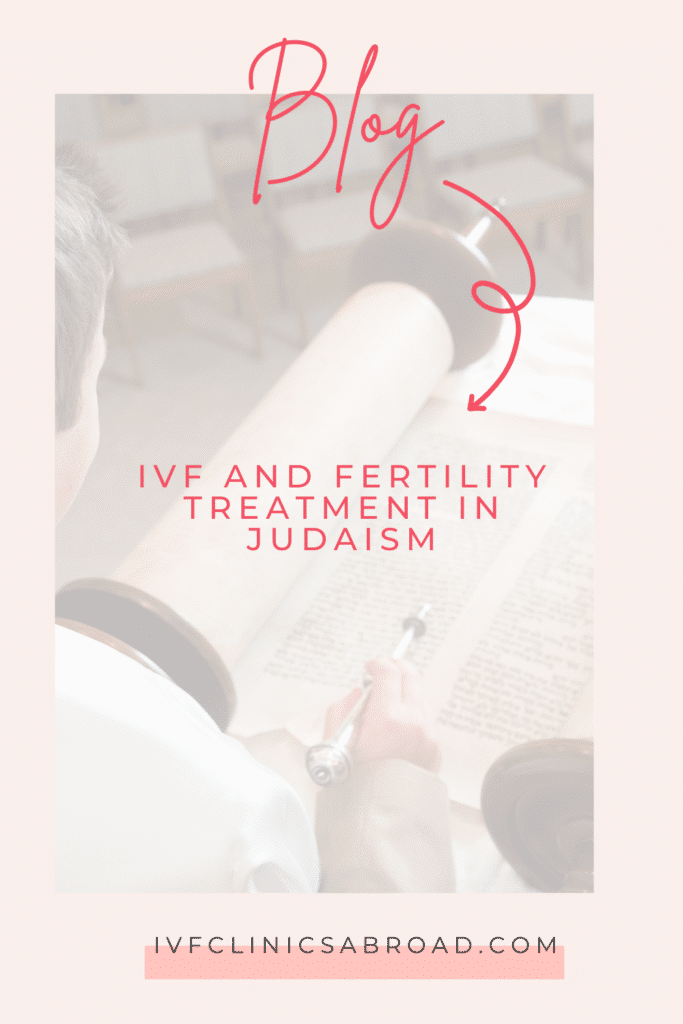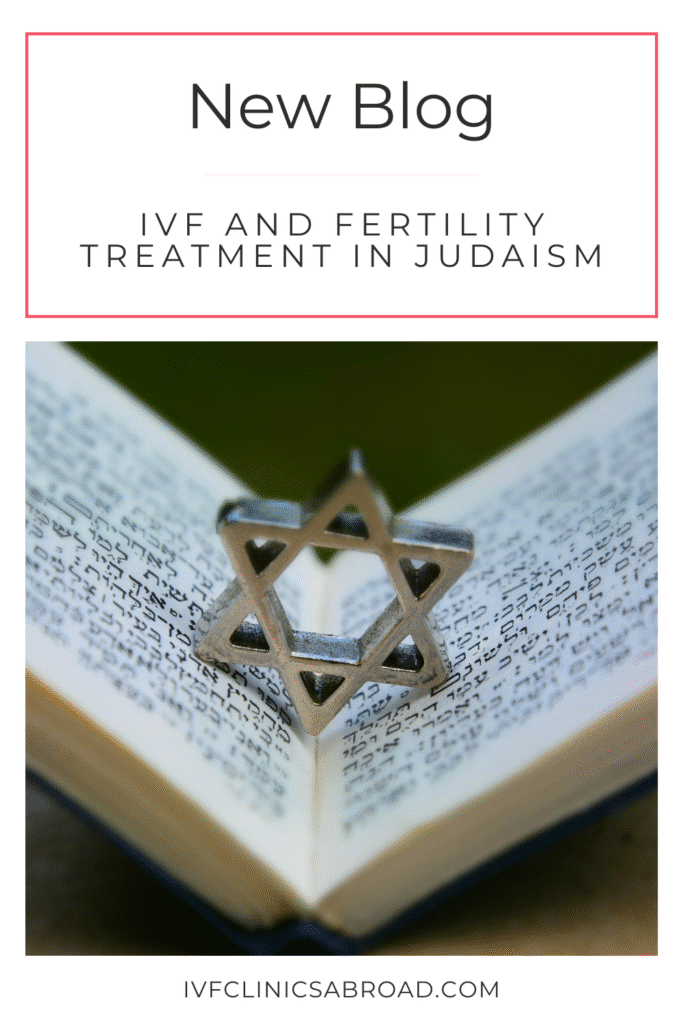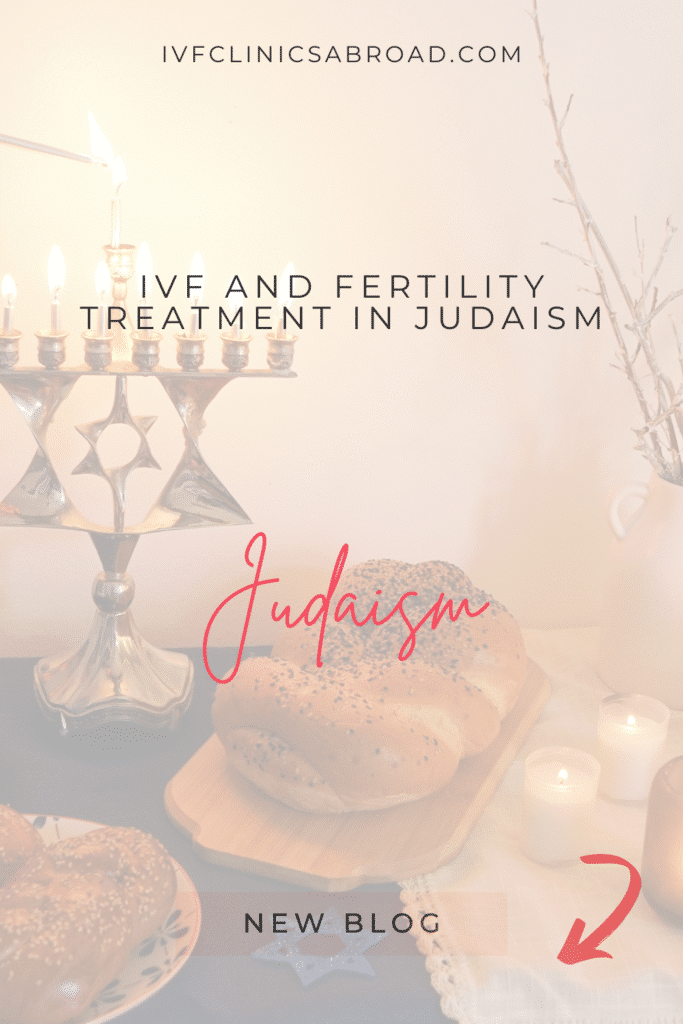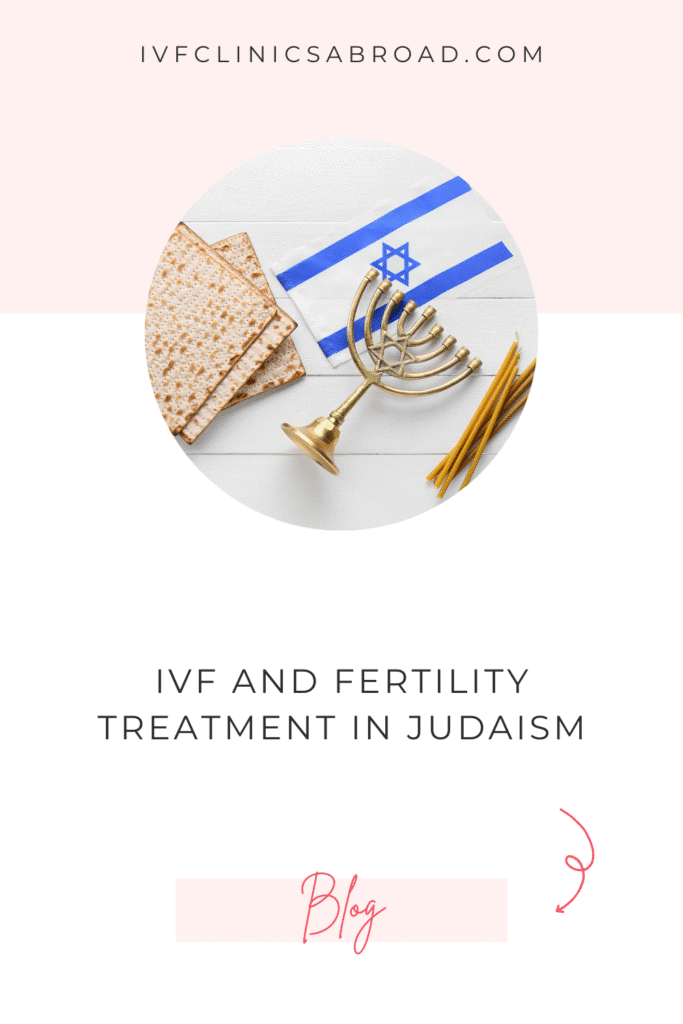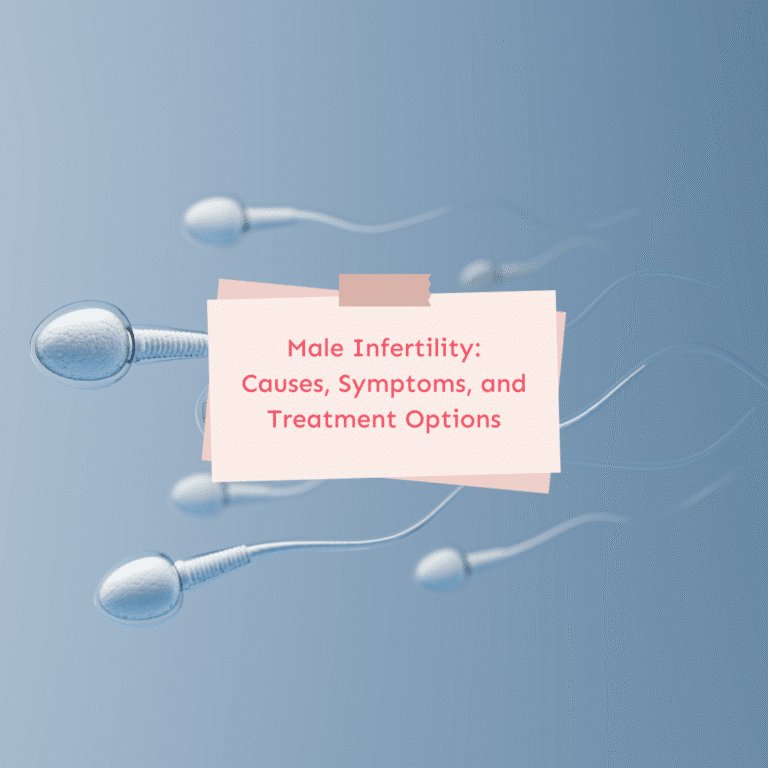IVF and Fertility Treatment in Judaism: What Jewish Law Says About Modern Reproductive Treatments
When you think of Judaism, you might first think of long traditions, sacred rituals and ancient commandments in the Torah. But what happens when a modern Jewish family faces infertility? Can IVF or other fertility treatments be reconciled with Jewish law – especially for those in Orthodox Jewish communities?
Across the world, many couples in Jewish communities are trying to conceive but struggle with infertility. And while IVF and other forms of modern female and male fertility technology offer new hope, they also raise deeply personal and sometimes complicated religious questions. How do rabbis respond? What’s allowed – and what’s not – according to Jewish law?
Understanding the intersection of IVF and Fertility Treatment in Judaism is essential for those navigating these challenging waters.
In this article, we’ll explore the Jewish religion view on IVF, sperm and egg donation, embryo transfer, surrogacy and more. You’ll also discover how halachic interpretations vary depending on tradition, and why some rabbis are more open than others to reproductive technologies.
As we delve into these topics, it is crucial to consider IVF and Fertility Treatment in Judaism and how they are viewed within the community.
Let’s take a closer look at what infertility treatments are sanctioned by Jewish law – and how you can make informed, compassionate choices if you’re experiencing infertility and seeking help.
Understanding fertility in Jewish tradition
Fertility is more than just a personal hope or biological process in Judaism – it is seen as a religious responsibility. From the very beginning, Jewish law places strong emphasis on the importance of family and childbearing. Couples are not just encouraged, but commanded, to “be fruitful and multiply” – a phrase that echoes through the Torah and shapes how many Jews understand their role in continuing Jewish life.
For many Orthodox Jews, this commandment is deeply sacred. According to Jewish law, having children is considered one of the core duties of a married couple. And in traditional Jewish thinking, fulfilling this mitzvah brings meaning not only to personal lives, but to the continuity of the entire Jewish people. That’s why challenges like infertility are rarely seen as private struggles alone – they can touch on identity, faith, and purpose all at once.
And yet, even with all this religious importance, Jewish communities today find themselves navigating a rapidly changing landscape of fertility treatment and reproductive technology. The need to balance halachic tradition with modern medical realities is becoming more and more relevant – especially as more couples turn to IVF and related methods for help.
Why IVF and Fertility Treatment in Judaism is a sacred commandment
In Judaism, the very first commandment given to humanity is to have children. The Torah teaches that “God blessed them and said to them, ‘Be fruitful and multiply.’” This isn’t just poetic language – it’s a foundational part of Jewish belief. That’s why, in Jewish law (halacha), childbearing isn’t just allowed, it’s required – especially for the husband.
Over the centuries, rabbinical authorities have treated fertility as a mitzvah with deep spiritual value. Not being able to conceive can bring enormous emotional pain, especially when it’s tied to a commandment that holds so much meaning. This is one reason why rabbis today often show great compassion to couples experiencing infertility – they know it’s not just about biology, but also about spiritual longing.
At the same time, this commandment also opens the door to seeking medical help. Many rabbis believe that undergoing fertility treatment can be seen as fulfilling a religious obligation – not going against it.
What the Torah teaches about infertility and family
The Torah contains many stories of women who struggled to conceive – from Sarah and Rachel to Hannah – and their longing for children is treated with understanding and dignity. These stories show that infertility is not a sign of failure or punishment, but a human experience that can be met with faith and perseverance.
Jewish tradition recognises that not every path to parenthood is straightforward. That’s why, today, modern fertility technology – including IVF and other reproductive technologies – is often seen by Jewish authorities not as a contradiction to faith, but as a tool to help couples fulfil a divine commandment.
Of course, questions remain. Who is the halachic mother when donor eggs are used? Is artificial insemination allowed if sperm must be collected outside of intercourse? These are the kinds of real-life concerns that Jewish couples face – and they’re exactly what we’ll explore in the next sections.
IVF and reproductive technologies in Jewish legal thought
For many Jewish couples experiencing infertility, the question of whether IVF is allowed under Jewish law is both deeply personal and spiritually complex. Unlike some religions that strictly prohibit assisted reproduction, Judaism – especially within Orthodox frameworks – takes a more nuanced view. Fertility is not just a medical issue, but a commandment rooted in the Torah: “Be fruitful and multiply.” This first commandment carries both urgency and holiness, making the use of fertility technologies something that must be approached with care, intention and halachic guidance.
Jewish law, or halakha, doesn’t shy away from modern medicine. In fact, many orthodox rabbis consider it a mitzvah to use available reproductive technologies when natural conception isn’t possible. Still, halachic concerns are not about the technology itself, but about how it’s used – who the gametes come from, how sperm is collected, how embryos are handled, and how the process respects the sanctity of Jewish family structure.
This is why many Orthodox Jews undergoing fertility treatment consult a rabbi alongside their fertility doctor. It’s not a question of choosing faith over science – it’s about making sure the two can work together.
The role of halakha in guiding fertility treatment decisions
Halakha offers a detailed framework for navigating the complex ethical questions that come with assisted reproduction. One of the central concerns is semen collection, since masturbation is generally prohibited under Jewish law. However, many Orthodox rabbis make exceptions for fertility purposes. A common solution is using a special condom with a small opening during intercourse, allowing semen to be collected without violating halachic principles. In some cases, a doctor may be permitted to assist with the process, as long as the goal is conception.
The laws of niddah – which restrict physical contact between husband and wife during menstruation and for a short time afterwards – also affect IVF timing. Treatments must avoid periods of impurity, and this can mean delaying certain steps to align with the woman’s mikveh cycle. It’s not just about scheduling – it’s about maintaining spiritual integrity throughout the treatment.
When donor sperm or donor eggs are considered, halachic debates grow more intense. Many rabbis prohibit donor sperm altogether, especially from Jewish men, due to concerns about lineage and the potential for future issues like accidental incest. However, some rabbis permit donor sperm from non-Jewish donors under specific conditions. The main goal is to preserve family clarity and avoid any confusion in Jewish status.
When vitro fertilization and IVF are permitted
IVF – or in vitro fertilization – is generally allowed under halachic law when the sperm and egg come from the married couple themselves. Most Orthodox authorities agree that if a couple has been trying to conceive for at least two years without success, and a medical evaluation shows a need for IVF, then the procedure is permitted. In fact, many Jewish authorities view it as a moral obligation – a chance to fulfil the Torah’s commandment to build a family.
Embryo handling is another key concern. While freezing embryos for future use is usually permitted, destroying them intentionally is not. If leftover embryos are no longer needed, they must be left to thaw naturally. This aligns with the halachic idea of avoiding active destruction of potential human life.
Egg donation, like sperm donation, is controversial. Some rabbis allow it if the donor is not Jewish – again, to avoid identity complications. Jewish motherhood is traditionally passed down by the woman who gives birth, not the one who provides the egg. This view allows for egg or sperm donation in some Orthodox contexts, but it’s far from universally accepted.
Ultimately, IVF and related technologies are not only allowed in many Jewish legal interpretations – they are seen as a blessing, as long as they respect the structure and values of halachic life.
“When it comes to building a family, halacha seeks not to obstruct, but to guide. Our role is to help couples find a path to parenthood that honours both their longing and their faith.“
Rabbi Dr. Edward Reichman, Orthodox bioethicist and professor at Einstein College of Medicine
Artificial insemination and gamete use under Jewish law
When a couple is struggling to conceive, artificial insemination often comes up as one of the first medical options. In Jewish law, this procedure opens up a number of halakhic discussions – not because the goal is questioned, but because the method matters. The Torah clearly encourages couples to have children, and Judaism honours the sanctity of life and family. But the way sperm is collected, and whether it comes from the husband or a donor, affects whether a treatment is sanctioned by Jewish law.
According to Jewish legal authorities, the process of semen collection needs to be approached with halachic sensitivity. That’s because masturbation, known in halachic terms as hotza’at zera levatalah, is typically forbidden. Many rabbis make allowances when sperm is needed for the purpose of conception – especially within a marriage – but still recommend alternatives to minimise halakhic issues.
The preferred method involves using a non-medicated condom with a pinhole during intercourse, so the sperm can still reach the wife’s cervix while also being collected for fertility purposes. In other cases, a doctor may use a mechanical stimulator to assist with collection. The key question remains: is the collection and use of sperm aligned with the intention to create life within a Jewish marriage?
Sperm collection, donor use and halakhic concerns
Artificial insemination with a husband’s sperm is generally permitted if natural conception hasn’t occurred after at least two years of trying and a medical diagnosis supports it. But even then, the woman must not be in a state of niddah, as halachic law prohibits fertility procedures during that time. So timing matters – not just medically, but spiritually too.
When donor sperm is considered, the issue becomes more complex. Many orthodox rabbis completely forbid donor sperm from Jewish men, due to concerns over lineage, inheritance, and potential future confusion in Jewish identity. Some halachic authorities allow sperm from non-Jewish donors under strict conditions, as this avoids problems related to Jewish status or accidental incest within Jewish communities.
The use of donor gametes also raises questions about who the “real” parent is. Halachic interpretations vary, but the majority opinion in Orthodox Judaism still leans toward avoiding any third-party involvement – especially when the donor is Jewish. That said, some more modern rabbis, particularly within Conservative and Reform movements, allow gamete donation under specific ethical and rabbinical supervision.
What rabbis say about artificial insemination and gamete transfer
While Orthodox rabbis tend to be more cautious or restrictive, many acknowledge that artificial insemination can be a lifeline for couples experiencing infertility. It’s not about dismissing the technology – it’s about preserving Jewish continuity, respecting halacha, and making sure every child knows where they come from.
There’s also an emotional layer to these decisions. Couples often want rabbinical support not just for permission, but for peace of mind. Within Orthodox Jewish life, knowing that a rabbi has sanctioned a procedure – that the process is not only effective, but spiritually sound – makes all the difference.
Modern fertility technology has created new possibilities for Jewish families. But as always, halacha asks us to pause, reflect, and proceed with care – so that creating life remains both a medical achievement and a mitzvah.
Egg donation, embryo transfer and the identity of the mother
Among all the questions raised by IVF and fertility technology, few are as emotionally and halachically complex as egg donation. For many Jewish couples, especially those facing premature ovarian failure or repeated IVF failure, using a donor egg feels like a hopeful next step. But in Orthodox Judaism, this path isn’t straightforward. It’s not just about whether the procedure works – it’s about the child’s identity, the definition of motherhood, and how Jewish status is transmitted.
According to Jewish law, lineage is deeply significant. The child’s Jewish identity, their ability to marry within the community, even their place in the family – all of this can be influenced by the origin of the egg. The core question is this: who is the mother in the eyes of halacha – the woman who donates the egg, or the one who carries the baby in her womb?
Jewish legal views on egg donation and maternal status
Many Orthodox rabbis remain cautious or even opposed to egg donation. The reason isn’t a rejection of fertility treatment itself – rather, it’s the concern about blurring family lines. In traditional Jewish thought, the mother is usually the woman who gives birth, but when the genetic material comes from another woman, opinions diverge. Some halachic authorities argue that the donor is the true mother, while others say the woman who carries and births the child should be recognised.
To reduce future doubts, some rabbis suggest only using non-Jewish egg donors – this way, the child’s Jewish status is conferred clearly by the mother who gives birth. But this too comes with halachic implications, especially in communities that require a clear, traceable Jewish lineage.
Egg donation is more widely accepted within Reform and Conservative Jewish movements, particularly when the intended parents are open about the process and committed to raising their child with Jewish values. For Orthodox couples, decisions about egg donation are rarely made without the guidance of a trusted rabbi – someone who can weigh medical necessity against halachic continuity.
Embryos, lineage and the question of genetic identity
Once donor eggs are fertilised and embryos are created, further questions arise. If multiple embryos are formed during IVF, what happens to those that aren’t implanted? Jewish law generally permits freezing embryos for future use – but active destruction is discouraged. Embryos are not considered full human life in halacha, yet they carry potential, and therefore must be treated with dignity.
And if a child is conceived through IVF and embryo transfer, does their origin affect their identity within the Jewish family? Here again, halachic authorities are divided. Some believe that as long as the child is born to a Jewish mother, their lineage is sound. Others maintain that any use of donor gametes, whether egg or sperm, introduces uncertainty into the child’s heritage.
For families navigating this delicate space, embryo donation may feel like a bridge – a way to have a child without involving fresh gamete donation. But even this raises questions. Who are the genetic parents? What does Jewish law say about the sanctity of conception through third parties? And how should this be explained to the child later?
In the end, Jewish legal discussions about egg donation and embryo transfer are not just about rules – they’re about values. They reflect a deep care for identity, continuity, and clarity. And for couples walking this path, halachic guidance is not there to block them – but to help them build a family that is both wanted and welcomed.
Surrogacy and modern family structures in Orthodox Judaism
Surrogacy is one of the most emotionally charged and halachically debated topics within Orthodox Jewish circles. For some couples, it represents the only way to carry forward a biological connection when the mother cannot carry a pregnancy herself. But the question Orthodox Judaism asks isn’t just can it work? – it’s is it allowed according to Jewish law, and who is the mother?
Surrogacy forces Jewish legal thinkers to revisit ancient concepts of lineage, motherhood and family in light of modern reproductive technologies. And unlike IVF or artificial insemination, where halachic opinions have slowly evolved toward conditional acceptance, the surrogacy conversation remains deeply divided.
When surrogacy is allowed under Jewish law
The answer is: it depends. In many Orthodox communities, surrogacy is discouraged or even forbidden – especially when it involves a married woman carrying another couple’s child. The fear here is rooted in concerns about adultery under halachic definitions, as well as confusion around parental status. Who is the mother: the woman who provided the egg or the one who gave birth?
Still, there are Orthodox rabbis – particularly in Israel – who allow gestational surrogacy under very specific circumstances. They emphasise that the child’s Jewish status follows the birth mother. Therefore, many insist the surrogate must be Jewish, unmarried, and ideally, not related to the couple. Some also argue that the halachic commandment to “be fruitful and multiply” can, in rare cases, justify the use of a surrogate when no other path to parenthood is possible.
What complicates the matter is that even among Orthodox rabbis, there’s no uniform consensus. Some prominent halachic authorities permit surrogacy with oversight, especially if the process includes rabbinical guidance at every step. Others oppose it altogether, citing the risk of emotional harm, halachic ambiguity, or the commodification of childbirth.
How Orthodox Jewish communities approach new family models
Within Orthodox Jewish communities, family is sacred – but also clearly defined. The model of husband and wife, raising children conceived naturally, remains the gold standard. So when reproductive technology introduces new constellations – egg donors, sperm donors, surrogates, unmarried mothers – communities struggle to reconcile tradition with reality.
In more conservative Orthodox circles, new family models involving surrogacy or donor gametes may be quietly discouraged or even socially stigmatised. Children born through these methods may face questions later on about their halachic status, particularly when it comes to marriage eligibility.
Yet there are also signs of change. Younger Orthodox Jews, especially in places like New York or Jerusalem, are increasingly open to family-building through fertility treatment – as long as it’s guided by trusted rabbinical authorities. Clinics in Israel, for instance, often work closely with religious advisors to ensure all protocols respect halachic boundaries.
The emotional dimension matters, too. For many women, not being able to carry a child themselves can feel like a spiritual loss. Surrogacy, when done with care and rabbinic blessing, can offer not just a medical solution, but a path toward healing.
In the end, the Orthodox Jewish approach to surrogacy isn’t static. It’s cautious, case-by-case, and deeply intertwined with the values of modesty, lineage, and religious responsibility. For some, it remains a red line. For others, it’s a lifeline – one that, when navigated carefully, can be both halachically sound and deeply meaningful.
Preimplantation genetic testing and gender selection in Jewish ethics
The world of fertility treatment has expanded rapidly – and with it, the possibilities to learn more about embryos before implantation. For some, this opens the door to hope. For others, it raises serious questions. Within Jewish ethics, preimplantation genetic testing (PGT) is viewed through both a scientific and a spiritual lens – especially when it comes to disease prevention, family balancing, or even choosing the gender of a future child.
When genetic testing is supported by Jewish law
In general, Jewish legal authorities are open to the use of preimplantation genetic diagnosis (PGD) when there’s a clear medical reason. If there’s a known risk of passing on a severe or fatal genetic disorder – especially one that is common in certain Jewish communities – many rabbis consider PGD not only permissible, but advisable. Some even see it as a fulfilment of the obligation to protect future generations from harm.
PGD can also be used in rare cases to help save an existing child’s life – for instance, by selecting an embryo that would be a suitable donor for bone marrow or stem cells. In such cases, Jewish law generally supports the decision, as long as the process respects the dignity and sanctity of all embryos involved.
Where it gets more complicated is when PGD is used not to avoid illness, but to choose traits – including sex. Here, opinions diverge.
The debate around gender selection in Jewish tradition
n Jewish tradition, having children is a sacred commandment – and ideally, one boy and one girl. Some halachic authorities therefore allow gender selection under limited conditions, especially if a couple already has several children of the same sex. The idea is not to “design” a child, but to bring emotional balance and fulfilment to the family. In practice, this means that in places like Israel, a couple might be permitted to request gender selection through PGD once they have at least four children of the same sex.
Still, many rabbis remain cautious. They worry that gender selection, even for family balancing, risks turning children into “products” of preference rather than gifts from God. Others note the emotional and ethical strain it can put on the couple – especially when many embryos are created, tested, and ultimately discarded because they don’t match the desired outcome.
In more liberal Jewish communities, gender selection may be seen as a personal choice rather than a halachic issue. In Orthodox circles, however, the decision is almost always tied to rabbinical approval, and the process must be carried out with transparency, sensitivity, and respect for the values of life and modesty.
What’s important to know: while Judaism permits certain technologies, it often sets spiritual boundaries around their use. That includes asking not just can we do it, but should we?, and under what conditions does this reflect who we are – as individuals, as parents, and as part of a Jewish community.
Personal choices and pastoral support in fertility treatment
Every fertility journey is deeply personal – and for many Jewish couples, it is also spiritual. Navigating IVF or other treatments isn’t just about choosing a clinic or starting a cycle. It’s about making sure that every step feels right – not only from a medical perspective, but also within the framework of Jewish values and beliefs.
Many couples experiencing infertility carry not just the burden of physical tests and procedures, but also the emotional weight of halachic questions: Is this allowed? Is this the right thing to do? Are we honouring our tradition – and ourselves – in the way we approach this path?
The importance of rabbinic consultation and emotional care
In Orthodox Jewish communities especially, the support of a trusted rabbi can be invaluable. Not just for halachic guidance – although that matters greatly – but also as a source of compassion, reassurance and continuity. A rabbi can help couples understand what is permitted, what is debated, and what needs to be adapted depending on their circumstances.
At the same time, emotional care is just as vital. For many, this journey includes grief, hope, exhaustion, and spiritual reflection. The best pastoral support – whether from a rabbi, a therapist or a fertility expert who understands Jewish law – is one that makes space for all those layers. No judgment, no pressure. Just presence, patience, and clarity.
It’s also worth noting that some couples feel caught between conflicting opinions – from rabbis, doctors, family or community. In such moments, it helps to remember that halacha often offers more flexibility than people assume. Many Jewish authorities agree: the goal is not to make couples feel ashamed, but to help them find a path forward that respects both their longing and their beliefs.
Balancing reproductive hope and religious responsibility
For Jewish couples considering IVF, egg donation or embryo transfer, the question is rarely just can we do this medically? – it’s can we do this and still feel aligned with our faith?
That’s why the decision to undergo fertility treatment should be made with both hope and humility. Not every rabbi will give the same answer. Not every clinic will understand the nuances of halachic timing, modesty, or Jewish legal identity. But with the right support – both pastoral and practical – many Orthodox Jews find a path that allows them to build their families without compromising their values.
Ultimately, Judaism does not turn its back on those struggling to conceive. On the contrary – it honours their pain, and upholds their desire to bring life into the world. What matters most is how that life is approached: with integrity, with care, and with the wisdom of those who walk this road alongside you.
Your next step – exploring IVF with clarity and confidence
If you’re a Jewish woman thinking about IVF, egg donation or other fertility treatments, you probably have more questions than answers right now. And that’s completely normal. The intersection of reproductive technology and Jewish law is anything but simple – but you don’t have to figure it out alone.
Whether you identify with Orthodox Judaism or come from a more progressive background, it’s possible to find a path that feels both medically sound and spiritually meaningful. The key is clarity: understanding what your tradition allows, where rabbinic opinions may differ, and how to make informed choices that align with your values.
What to know before starting IVF as a Jewish woman
Before choosing a clinic or booking an IVF cycle, take time to ask the questions that matter most to you. Is the clinic familiar with halachic considerations – like niddah, sperm collection methods or embryo handling? Can you speak openly about the emotional, spiritual and logistical factors that shape your journey?
Some clinics, especially in countries like Israel or in certain IVF hubs abroad, are experienced in working with Jewish couples – including those who observe Shabbat, follow kosher protocols for medical care, or want rabbinic involvement in key decisions. Others may need a bit of guidance from you – or from a halachic advisor – to fully understand what matters most.
That’s why it helps to be prepared. Know your options. Know what’s negotiable, what isn’t, and where the boundaries lie – not just according to Jewish law, but according to your comfort level.
Finding supportive fertility clinics that respect Jewish values
You deserve a clinic that treats your beliefs with respect – not as a complication. That includes an understanding of modesty and privacy, flexibility in scheduling around religious obligations, and openness to working with your rabbi if needed.
In some destinations, it’s even possible to plan IVF treatment around Shabbat, holidays, and niddah observance. And for certain procedures, like egg donation or embryo adoption, finding clinics that can offer clarity on the donor’s background – including Jewish status or identity – can make all the difference.
To help you compare options with confidence, we’ve created a guide that outlines where different treatments are allowed, what clinics abroad can offer, and what to watch out for – especially when it comes to procedures like PGD, donor gametes, or gender selection (yes, even that’s addressed under Jewish law in some cases).
If you’d like to explore your options in a way that respects both your longing and your beliefs, our guide is a helpful place to start. And if you still feel unsure, you’re always welcome to reach out for personal support.
Get the Europe IVF Guide – including an overview of legal options, price ranges and average success rates in destinations like Northern Cyprus.
Prefer a more personal conversation? Book a private consultation to get clarity, feel supported, and take your next step with peace of mind.
